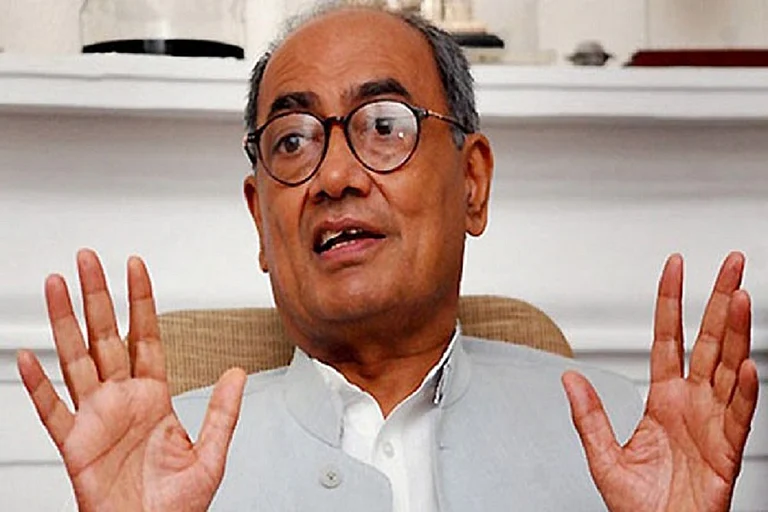The politics of Uttar Pradesh took a dramatic turn when the Bharatiya Janata Party (BJP)-led central government, on February 9, announced the Bharat Ratna to Chaudhary Charan Singh, the late former Prime Minister of India and Chief Minister of UP. Jayant Singh, the grandson of Charan Singh and the chief of Rashtriya Lok Dal (RLD), gave an immediate positive reaction to the development and hinted his joining the National Democratic Alliance (NDA) was imminent.
Then, on Monday, Jayant formally said that the RLD has quit the INDIA bloc and has joined the NDA. Currently, RLD has nine MLAs in the Uttar Pradesh assembly and Jayant is the only party's only MP. He is a Rajya Sabha member.
The Journey From Lok Dal to Rashtriya Lok Dal
The origin of the RLD traces back to the tumultuous years before the ninth general elections in India in 1989.
VP Singh, dissatisfied with the leadership of Rajiv Gandhi, left the Congress party to make a new political party, Janta Dal, by merging different anti-Rajiv factions of Congress along with a few parties that originated during Jayprakash Narayan’s 1974-75 movement. These parties include Janata Party, Janata Party (Secular), Lok Dal, Indian National Congress (Jagjivan), and Jan Morcha.
During the 1989 elections, a broad coalition of anti-Congress parties from the left, right, and centre of the political spectrum was formed. It was called the National Front (NF). The NF formed the government and Singh became the Prime Minister of India.
Chaudhary Ajit Singh, the son of former Prime Minister and peasant leader Charan Singh, was the General Secretary of the Lok Dal. Once the NF formed the government, he became the Union Minister for Industry in the Singh ministry. He was re-elected as a Janata Dal MP in 1991 and later served as Union Cabinet Minister of Consumer Affairs, Food, and Public Distribution in the Congress-led alliance under Prime Minister P V Narasimha Rao in 1995.
Having briefly joined the Congress, Ajit won the 1996 Lok Sabha polls on a Congress ticket. Subsequently, he left the Congress to establish the Bharatiya Kisan Kamgar Party (BKKP) to advocate for farmers' interests. The BKKP evolved into the RLD in 1997.
In 2001, Ajit joined the NDA government led by Atal Bihari Vajpayee and assumed the role of Union Agriculture Minister. However, in the 2004 Lok Sabha elections, the RLD joined forces with the Samajwadi Party (SP) to unite the other backward classes (OBC) votes, resulting in the RLD winning three out of the ten seats it contested.
RLD’s Electoral Journey
Since its formation, the Rashtriya Lok Dal (RLD) has undergone a diverse electoral journey as reflected in its performance across various Lok Sabha elections.
In the 12th Lok Sabha in 1998, the RLD contested eight seats but did not register any win. In the 13th Lok Sabha in 1999, the RLD managed to secure two seats out of seven contested seats, constituting approximately 0.37 per cent of the overall vote share. The party's presence increased in the 14th Lok Sabha in 2004 where it contested 10 seats and emerged victorious in three, garnering a 0.63 per cent vote share. The 15th Lok Sabha in 2009 saw the RLD securing five seats out of seven contested seats.
However, in the subsequent elections, the 16th Lok Sabha in 2014, the RLD faced a setback, failing to win any seat. The most recent electoral chapter, the 17th Lok Sabha in 2019, witnessed a decline for the party. It contested three seats but did not win any, registering just 0.24 per cent vote share.
Whereas in UP assembly elections, the RLD has experienced a fluctuating electoral journey over the years. In the 13th Legislative Assembly elections in 1996, the party contested 38 seats, winning eight of them, and garnering a vote share of 2.13 per cent. The 14th Legislative Assembly polls in 2002 marked a notable improvement for the RLD as it won 14 out of the 38 seats contested, increasing its vote share to 2.65 per cent.
However, in the 15th Legislative Assembly elections of 2007, the party faced a decline, securing only 10 seats out of 254 contested seats, with a reduced vote share of 1.95 per cent. The 16th Legislative Assembly in 2012 saw a slight resurgence for the RLD, winning nine seats out of 46, with a vote share of 2.33 per cent. The 17th Legislative Assembly elections in 2017 presented a challenging phase for the party, as it secured only one seat out of 171, with a vote share of 1.71 per cent. In the latest 18th Legislative Assembly elections in 2022, the RLD witnessed a significant resurgence, winning nine seats out of 33, and achieving a notable vote share of 5.18 per cent.
Support Base And Challenges
The RLD has traditionally championed the cause of farmers and rural communities of Western Uttar Pradesh and Rajasthan, advocating for their welfare and addressing agrarian concerns.
Over the years, the RLD has formed alliances with various political parties to strengthen its electoral presence. It has been known to align with both regional and national parties, showcasing its adaptability in coalition politics. The party's performance in elections has varied, with notable successes in certain state elections and collaborations with larger political entities for broader electoral impact.
While the RLD has faced challenges in different electoral contests, it remains a key player in the political landscape of Uttar Pradesh, with its agenda resonating among sections of the rural electorate. The party continues to navigate the complexities of Indian politics, working towards its goals of rural upliftment and social justice. This can be the reason for the BJP’s efforts to announce the Bharat Ratna for Chaudhary Charan Singh, which resulted in RLD’s joining the NDA.








.png?auto=format%2Ccompress&fit=max&format=webp&w=768&dpr=1.0)

















